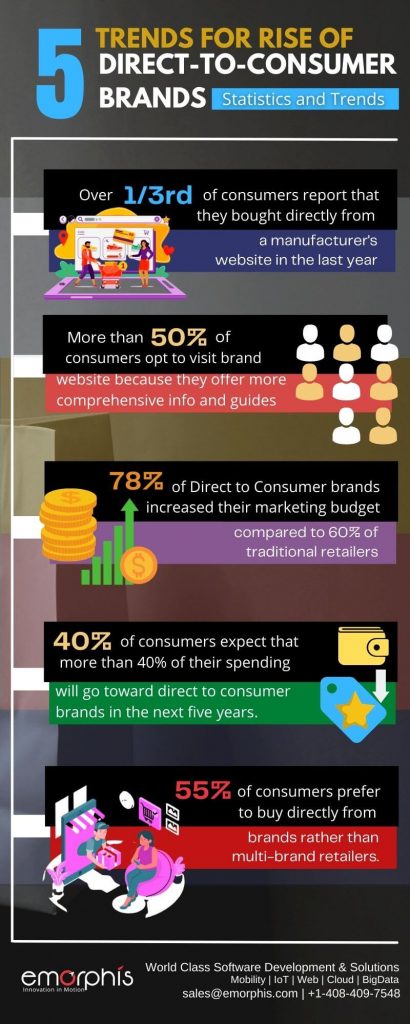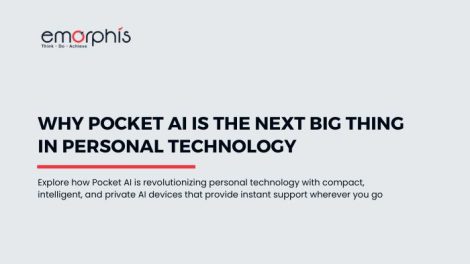Introduction
As per retail experts, the e-commerce sale shall see tremendous growth from a paltry $1.3 trillion in 2014 to a whopping $7.4 trillion by 2024.

Source: Statista
So, what does it implies to the organization?
It demonstrates a strong demand among global citizens for e-commerce services.
Additionally, the immense spending power of the consumers is the reason behind increased expense budgets for e-commerce services. With this in mind, any eCommerce company has the opportunity to expand its business with various eCommerce solutions and business models. One must give all thanks to the creation of surplus revenue.
In case you are thinking of accessing the services, it will be better to first get an understanding of the eCommerce business models. Correspondingly, it is this model that acts as per your business plan to mint money.
While most enterprises sell their products to both customers and businesses, most of them choose to pick their specialization. Furthermore, there are numerous eCommerce business models for retail can choose from:
- B2B: Business to Business
- B2C: Business to Consumer
- DTC: Direct to Consumer
Each model comes with its advantages and limitations that you must take note of before launching your own business store. Hence, the given blog will convey crucial information about all these models. Besides, it will also showcase their importance in each sector worldwide.
B2B eCommerce: Why Brands Should Take Utmost Care of it

It is the business model where retailer supplies their product (or set of products) to other through online mode. Equally, selling niche products is the best part of it as it appeals to more consumers into the fold.
Still, you could not get it?
Let's understand it with an example.
There is a company that sells automotive parts and supplies directly them to the automotive manufacturer who has expertise in building the whole vehicle. Then, the company follows the B2B model.
Simply said, all the business models that create a value that is consumed by other businesses follow the B2B model. Among all the eCommerce business models this is mostly focused on products that help further the business process.
Now, Why it’s so crucial?
It is because every enterprise requires purchasing the products and services from others in other to operate and grow in their respective sector. So, it thrives well on relationships. To make it successful, several things are crucial to achieving the goal:
- Educational content
- Testimonials
- Informative & professional website
Hence, a successful B2B e-commerce platform is one that not only generates leads but converts them into a cordial relationship with customers that generate revenue. Moreover, the B2B model comes with the following characteristics:
- It's a value game
- About business reputation
- It is a fact-based marketing
Now a question arises: Where does B2B software find its usage?
As a manufacturer, customers that comprise retail chains, distributer, or independent retail stores, are the ones who will need B2B platforms the most. Notably, they come up with sales, marketing, and accounting software that serves the business in the best possible manner.
Different Types of B2B Businesses Model
As we have seen before, every business takes different forms. If you want to avail services from top B2B platforms, then you have to understand its types also. In this case, you will need to focus on the following things:
- What to sell?
- How to sell?
- The direct impact of selling on your business.
After all, they have to face certain restrictions related to geography and security aspects. Yet, getting knowledge of each B2B businesses models will help you to kick-start your business easily.
Note: Don’t ignore it even you are well-established!
- Product-Based B2B Business Model
They are exclusively online (but also show their physical presence) and focus on selling physical products directly to the consumers through other business enterprises. Mostly, they act as a supplier to sell customized products of their clients to others.
For instance, Kisi is a product-based B2B organization that focuses on selling security hardware to other businesses.
Nevertheless, they offer physical products and hence, need a much higher investment initially than other B2B types.
- Service-Based B2B Model
They have numerous presences across the globe due to the requirement of services for different business enterprises. Moreover, they come with multiple service offers that include:
- Call management services
- Employee training services
- Marketing agencies
- Consultancy services
- Office security services
For example, Rioks is one such service-based B2B company that offers marketing consulting services to other organizations to enhance their market appeal.
- Software-Based B2B Business Model
At the present time, the software-based B2B model is getting wide acceptance. What’s more, they have involvement in software subscription that acts as a fill-up to meet business requirements. Although they can come under either product or service category, nevertheless they need to be put in a new category.
Advantages of the B2B Model
By all means, several benefits come with acquiring the B2B model. Some of them are as follows:
- B2B offers a stable and predictable market
- Better customer loyalty is an insurance offered by B2B
- It comes with a large market potential
- It offers higher switching costs
B2C eCommerce: A Powerful Marketing Disciple Every Enterprise Must Follow
For one thing, B2C is a different term. It implies a direct selling of products and services between consumers and enterprises. Moreover, most businesses choose this model to have direct interaction with their end customers.
For instance, any major fast-food chain like McDonald's follows the B2C model as it emphasized the delivery of services directly to the people (or individuals) and not to other enterprises.
Hence, one can easily define the difference between B2B and B2C models. The former is known to serve other businesses while the latter directly serves only customers.
So, it brings us to-
Evaluation of the different types of B2C business models
Types of B2C Models
So, there are a total of five distinct B2C business models that an enterprise utilizes to create a digital space for selling their products. These are:
- Direct Sellers
They are the most common form of B2C platforms where direct dealing of products is done with customers by an organization. Notably, Microsoft and Apple are prominent examples of the B2C model where entirely in-house products are sold to the customers.
- Online Intermediaries
Although they don’t own the products, still allow sellers to have direct contact with their potential buyers through their sire. Besides, they earn by taking a cut in the transaction between them. For case, eBay and Etsy are some examples of online intermediaries.
- Advertising-based B2C
The given model is becoming more acceptable in recent times. Why? The reason is the showcase of products on digital platforms (YouTube and Reddit) which receive a large volume of traffic. They utilize several criteria such as demographic and internet searches to place ads for the customers.
- Community-Based B2C
It takes the benefits of online communities that are common on media platforms. Accordingly, they have a mutual and common interest that helps companies to identify leads that will generate more revenue. One important example is Facebook, which helps individual build and connects online communities to promote their products and earn enormous money.
- Fee-Based B2C
The given model works on accepting payment to avail the content of any organization. In fact, several subscription services such as Netflix, Lynda, and Hulu are notable examples of a fee-based B2C model.
Advantages of the B2C Model
In particular, there are several benefits associated with the B2C model that helps any organization to enhance their business fortune. Some of them are:
- Lower prices with B2C help in forgoing additional and redundant costs
- B2C allows direct communication with buyers via SMS, email, and push notifications
- Wider appeal to the customers through social media
- Offers increased accessibility for buyers to purchase products from anywhere
DTC/ D2C eCommerce: What to Know & How it Shake Up your Business
First, it was B2B; then B2C, and now DTC / D2C… everything is getting more confusing?
However, there is no need to worry. DTC now has the potential to become a new trend in the retail and e-commerce sector.
Why is it gaining fame in every sector? What is so special about it, and why should we give it proper attention? Let's go back to the past!
Before the arrival of the internet, distributers were Godfather! Not only do they firmly control the business, but also dictate how to run it.
Nevertheless, the functioning of today's business is very much different. It belongs to producers who distribute their products, albeit in a democratic way.
In light of this, there is an emergence of a new brand of companies. They are the ones that produce, distribute and pack their services without sharing their margin.
So, it forms the basis of direct to consumer (DTC). Let’s dive more into it
Now, what is DTC (or D2C), and what does it stand for? It is an abbreviation that signifies the production of products by a company on their premises and then distributing them through their channel itself.
Why will DTC thrive even in the future?
Despite the complete dominance of the B2C model, DTC is making inroads in the digital world. How? Let's see the stats:

DTC/D2C Types: Models that Help Brands Sparkle
To clarify it; there are five distinct DTC business models that even small consumer brands can adopt and explore more opportunities to increase their success rate. These are:
- DTC with Direct Sales
Straightaway, it is the most common DTC model that comes with numerous and tangible benefits such as:
- Enhanced profit margins
- Optimize brand experience for every consumer
- Easy access to consumer information
One notable example of the given DTC model is Nike.
- DTC Model with Redirection to Channel
Here, there is an indirect engagement by the enterprise with their customers through traditional channels. For example, Pikolin is a bedding-based service provider that showcases its products on a digital platform before referring to its clients. Eventually, it will help them to get a deeper insight into their customers without disrupting the relationship between them.
- DTC Model with Direct Sales through a Marketplace
According to several pieces of research, online marketplace such as Amazon have become the first choice for searching for products (almost 66%). Further, it comes with an advantage. It permits companies of varying sizes to demonstrate their presence and appeal to customers easily.
- DTC Model with Social Commerce (or Live Shopping)
In the current scenario, social networking has become increasingly prominent. Moreover, social media apps such as Facebook or WhatsApp are becoming a common platform to purchase products. Likewise, another trend called live shopping is getting immensely popular. They utilize media streamers to demonstrate the product of an organization.
- DTC Model with Retailer Support
Generally speaking, most brands devote their best time to supporting the advertising and marketing of their products. Nowadays, the arrival of retail e-commerce platforms has come as a boon for them. It's because they offer wide support to increase the visibility of their brands and attract more customers.
Advantages of the DTC/D2C model
Among all eCommerce business models, considering the advantages, it is not difficult to see why the Direct-to-consumer eCommerce business model is gaining high popularity among businesses across the globe:
- Negate the role of the middleman to increase the profit percentage
- Full ownership of CRM to install owners in a better position to utilize data
- Provide option for swift-moving towards market so to target a niche audience
- More focus on personalization to offer appealing products to the customers
- Improve pricing control to permit users to avail higher profit margin
- Successfully meet the demand for a better customer experience
- More room for product testing
Conclusion
To summarize, without venturing much into the difference between B2B, B2C, and DTC, we can see how they fit into one’s business fruitfully. Likewise, it will also help you to identify marketing elements that fulfill your business focus appropriately.
On the contrary, we are not saying to ignore B2C for getting awareness about the product. Supporting it, we are also not saying to flush out the B2B model to accept e-commerce. Notwithstanding, we are asking you to combine both of their aspects to make the marketing of your products look more successful.
On the other hand, the DTC model is bringing with it a new revolution where one can create their distribution channel, and even increase their social media presence to come up with their products among customers with a boom!
At last, all three eCommerce business models are here to stay and will meet the needs and demands of every industry to develop a better consumer world.
Furthermore, look at how artificial intelligence in eCommerce is helping retail and eCommerce industry.
Also, check out retail software development page for more details.







